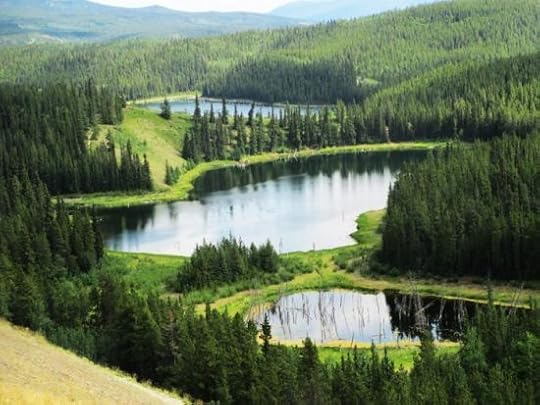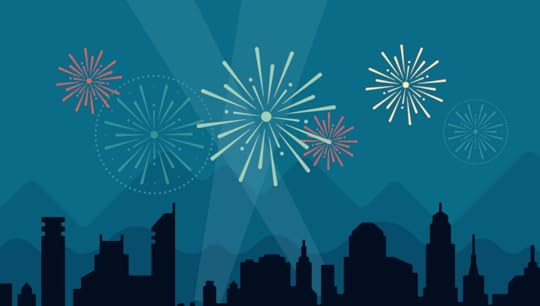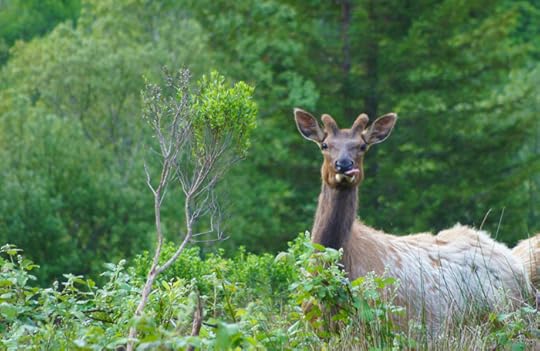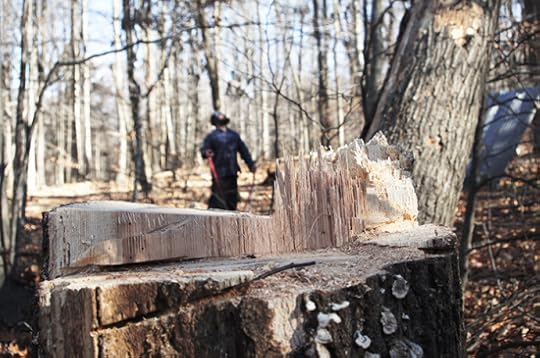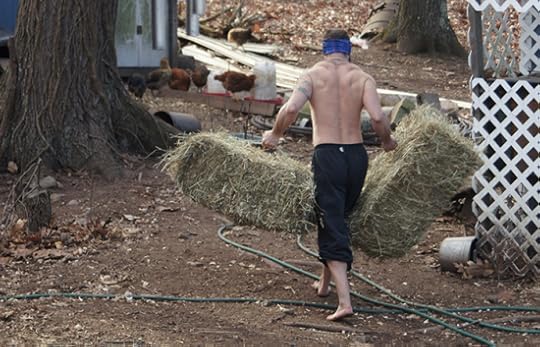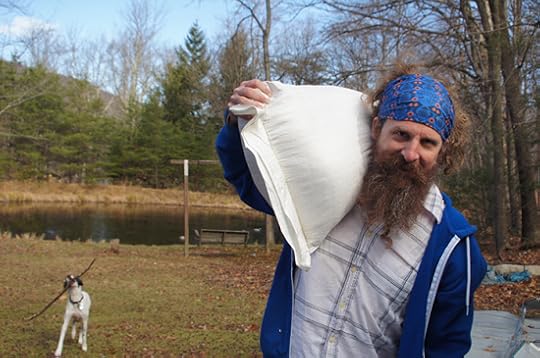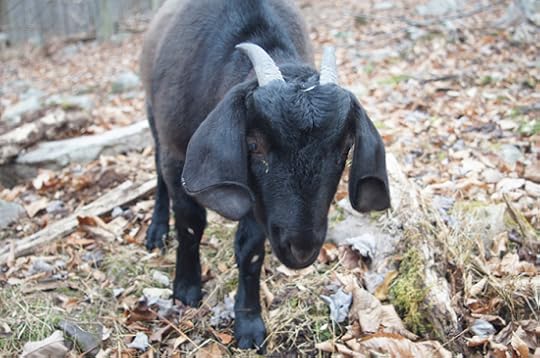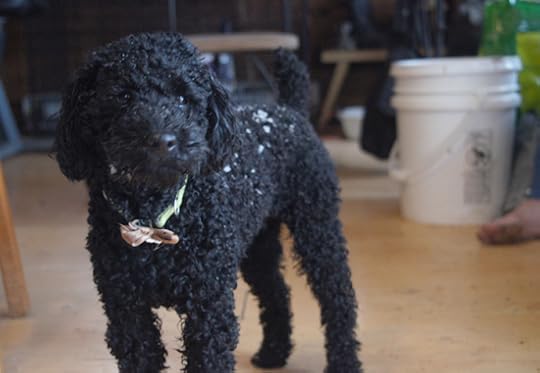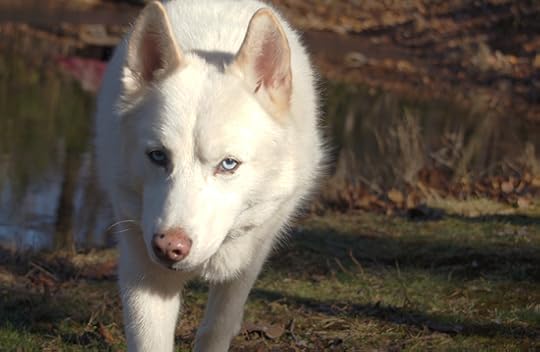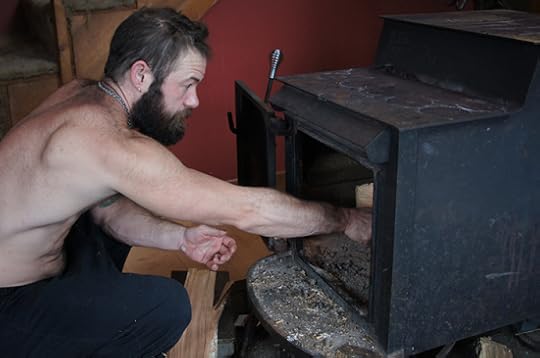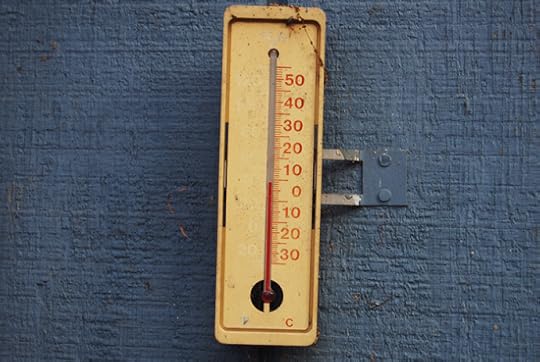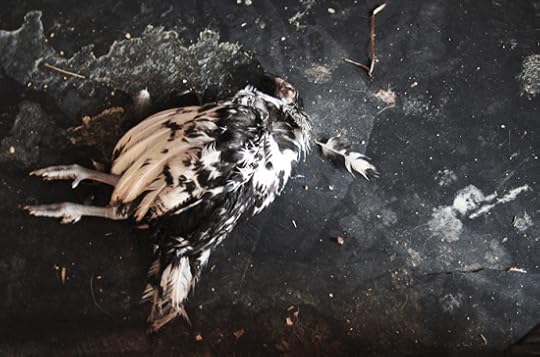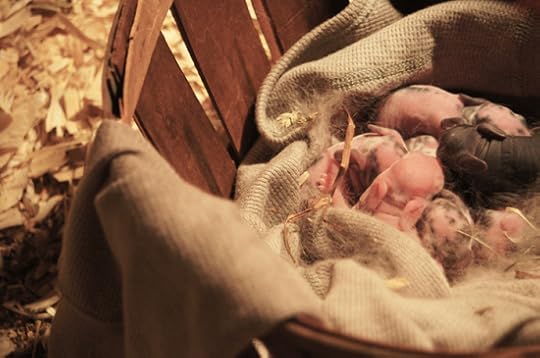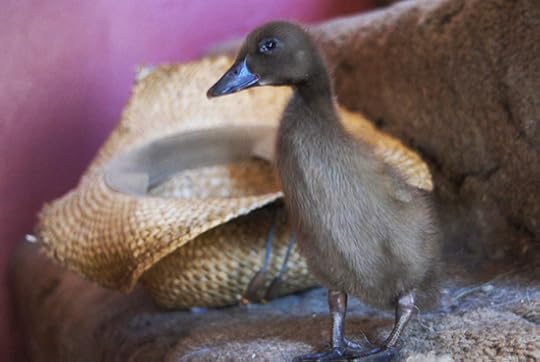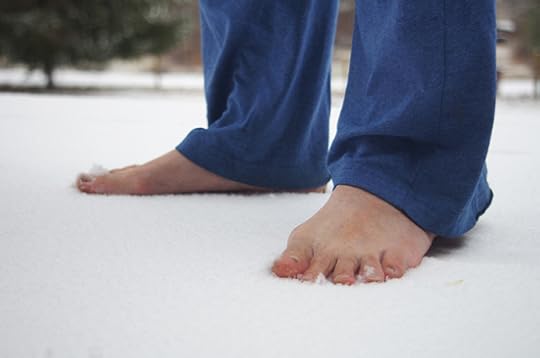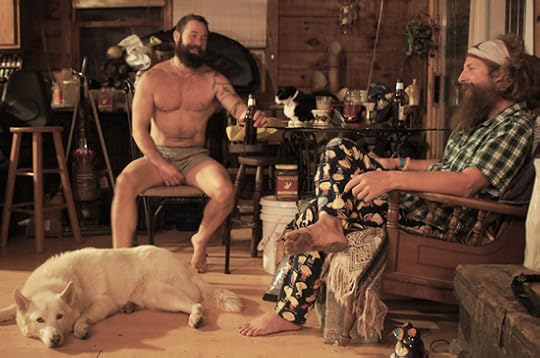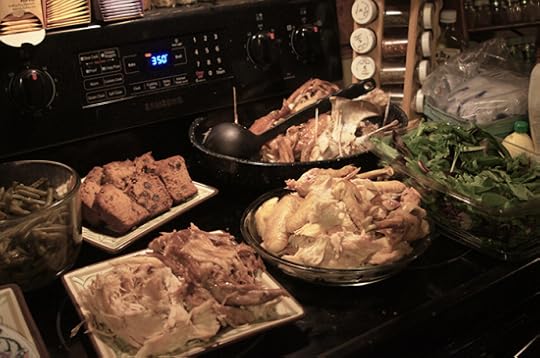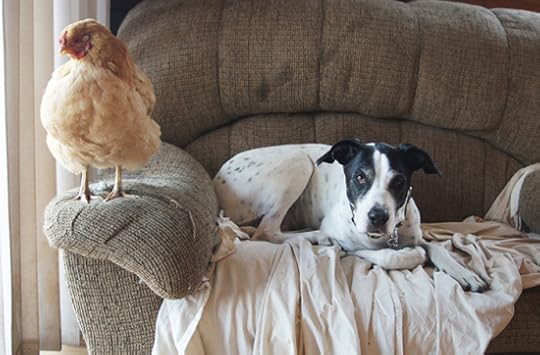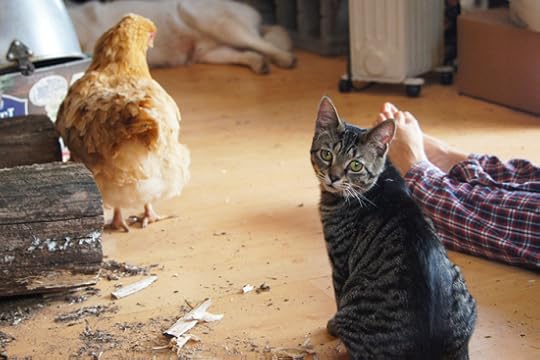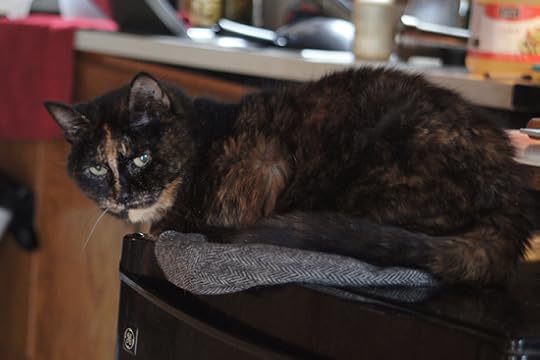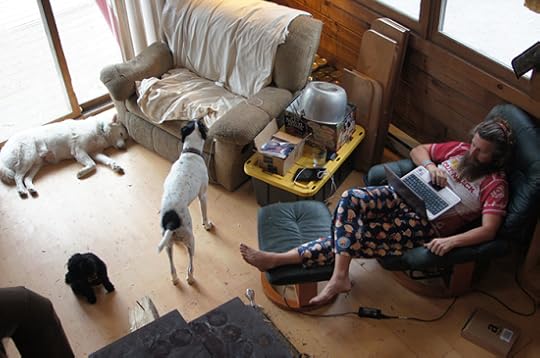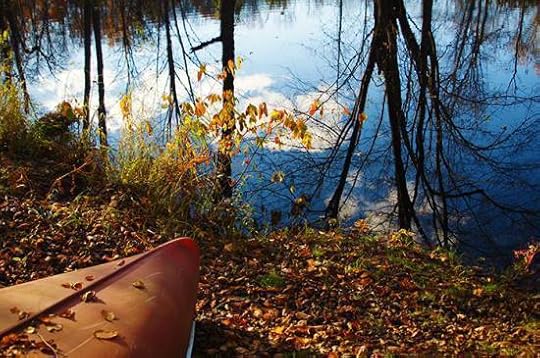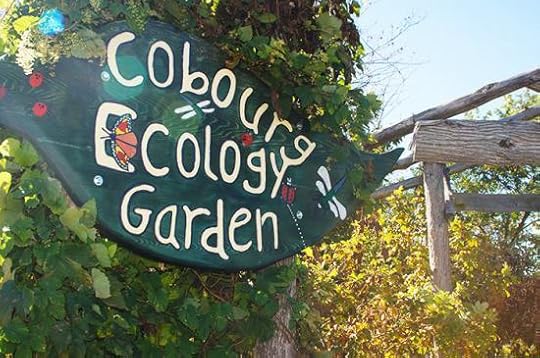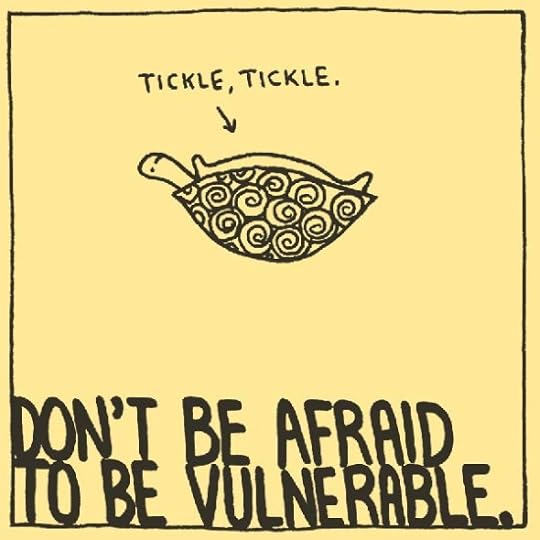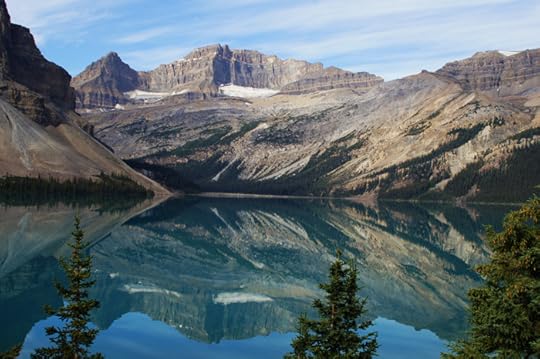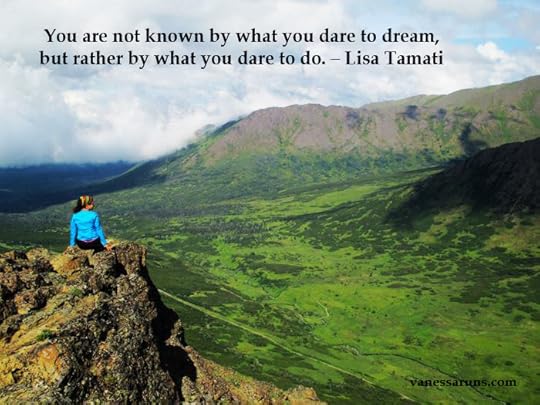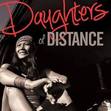Vanessa Runs's Blog, page 14
January 15, 2014
We’re Not in Niagara Falls Anymore: A Photo Essay About Water
Whitehorse, Yukon, Canada
If you happen to be growing up in a poor family in Toronto, Canada, and if you happen to be Hispanic, chances are you do the following three things: shop at Goodwill during the week, go to church on the weekends, and visit Niagara Falls on every holiday outing.
Chances are you walk the same half-mile section of pavement near the Falls, eating the sandwiches your parents brought from home and watching the ferry rides from a safe distance.
At Niagara Falls, I learned that nature was dangerous, full of caution signs, and could really only be enjoyed by the rich. I soon came to dread every long weekend at the Falls.
It wasn’t until we drove across North America last year that I was able to re-connect my soul to nature and specifically to water. It was my first time seeing a waterfall I was allowed to play in.
In many ways, our travels can be seen as a water pilgrimage, hugging the coast on the west and again on the east.
I have struggled to describe with words our human connection to water. It’s a primal and ancient relationship. Quite simply, water completes us.
“Take a course in good water and air; and in the eternal youth of Nature you may renew your own. Go quietly alone; no harm will befall you.” – John Muir
Below is a photo essay of my favorite waters across Canada and the USA.

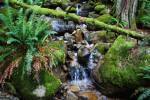
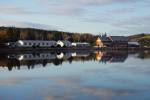
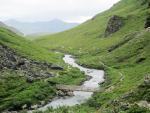
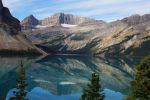

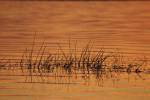



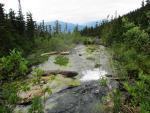
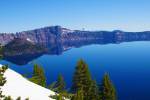
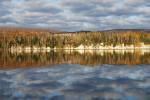
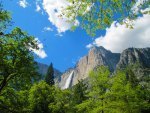
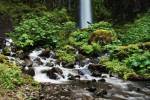


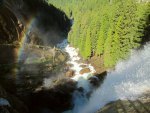
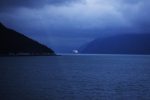
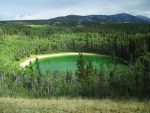
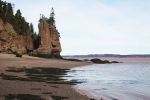
Full collection of my water photos in this video:
Direct YouTube Link HERE
There is a pleasure in the pathless woods,
There is a rapture on the lonely shore,
There is society, where none intrudes,
By the deep sea, and music in its roar:
I love not man the less, but Nature more.
- George Gordon, Lord Byron, Childe Harold’s Pilgrimage
You May Also Enjoy:
Weekly Photo Challenge: Escape
Winter Life on a Homestead (Photo Essay)
Killing my Thanksgiving Dinner and a Lesson in Gratitude (Explicit Photos)
****
Check out my book: The Summit Seeker


December 31, 2013
2013: Stats From a Year of Travel Blogging
The WordPress.com stats helper monkeys prepared a 2013 annual report for this blog.
Here’s an excerpt:
The Louvre Museum has 8.5 million visitors per year. This blog was viewed about 310,000 times in 2013. If it were an exhibit at the Louvre Museum, it would take about 13 days for that many people to see it.
Click here to see the complete report.
Being silly in beautiful places = what we did in 2013. Same plan for 2014.
Happy new year, dear readers!
You May Also Enjoy:
Winter Life on a Homestead (Photo Essay)
Seeking Dispensers: A Call to Embrace a Wild Life
****
Check out my book: The Summit Seeker


December 16, 2013
2013: A Year of Travel Across North America
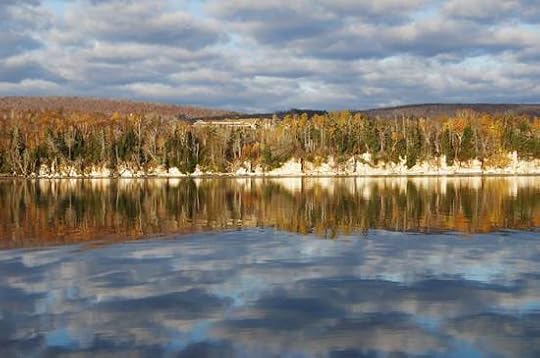
“Life is full of beauty. Notice it. Notice the bumble bee, the small child, and the smiling faces. Smell the rain, and feel the wind. Live your life to the fullest potential, and fight for your dreams.” – Ashley Smith
What could you do in one year if nothing were holding you back?
This is the question I asked myself at the beginning of 2013. My quest to answer it has taken us 40,000 miles across the continent. We began in California and drove north to Alaska. In the fall, we drove across Canada, then dropped into Pennsylvania for the winter at The Wolfestead. We have explored 2,000+ miles of trails and there is an urgency I feel when I tell people to stop putting off their ambitions. There is nothing holding us back.
2013: A VIDEO YEAR IN REVIEW
Direct YouTube Link HERE
You May Also Enjoy:
Happy Hoboversary! Stats from One Year Later
Ontario, Canada: Finding Home Right Where it Always Was
****
Check out my book: The Summit Seeker


December 6, 2013
Winter Life on a Homestead (Photo Essay)
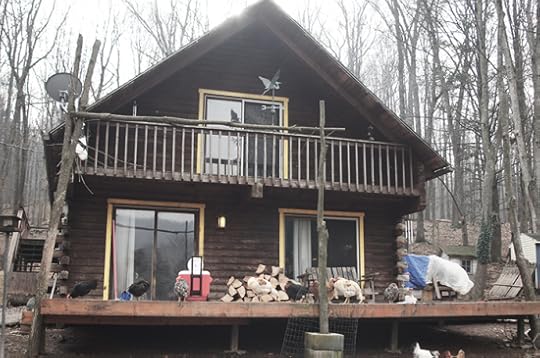 Life at the Wolfestead has brought me back to a time when people didn’t exert energy for the sake of exercise. They moved their bodies to play or to work, and often because they needed to survive. The winter has introduced a dimension of discomfort but also a satisfying sense of reward when work is finished.
Life at the Wolfestead has brought me back to a time when people didn’t exert energy for the sake of exercise. They moved their bodies to play or to work, and often because they needed to survive. The winter has introduced a dimension of discomfort but also a satisfying sense of reward when work is finished.
I came to the Wolfestead with a long distance trail running background and found farm chores more difficult than training for a 100-mile race. Also, farm chores offer no rest days. I have found this exertion to be functional, simple, and in many ways more rewarding than an endurance event.
I am still challenging my body, except now I have something to show for it: logs for the winter and fresh eggs for breakfast. These things I can savor more than a medal. The end result is more modest than crossing a finish line, but it feels pure.
I grew up with the myth that manual labor is something people do when they can’t go to college to escape the rigors of a menial, repetitive life. In reality, working with my hands has been one of the most mentally stimulating and creative things I have ever done–more so than higher-paying office work complete with brainstorming innovation meetings. These photos are a product of that inspiration.
The chore of felling trees, cutting up logs, hauling them down off the mountain, and chopping them into firewood is never-ending. We use the wood to burn a fire and heat the house. In exceptionally cold weather, the fire burns all night.
“An authentic life will be built, at least in part, of ordinary verbs: wake, plant, dig, mend, walk, lift, listen, season, note, bake, chop, store, stack, harvest, give, stretch, measure, wash, help, haul, sleep. And verbs bring nouns, what doing requires: shovel, needle, basket, axe, seed, pencil, boots, match, handle, bucket, knife, ear, saw, tape, bowl, barrow, boat, level, soil, wedge, hand.” - Christine Byl, Dirt Work: An Education in the Woods
About This Photo:
Each bale of hay weights around 50 lbs. A few days after we arrived, we restocked five bales and 300 lbs of chicken feed. It would have taken me all day just to move this stuff, but with Nate’s help it only took a few minutes. The hay is fed to the goats and the leftovers are raked into the chicken coops. Once the chickens have soiled it, it goes into the compost to feed the garden.
“I was headed away from physical work, toward the education meant to save me from it… Boys took shop. Smart kids went to college… Sports after homework is done… Exercise must fit into the workday. Nature is where we go to escape our ordinary lives… until we start to wonder, Who would I be if I chose the opposite?… Can’t our work bring us pleasure?… What if manual tasks are mentally rewarding?” – Christine Byl, Dirt Work: An Education in the Woods
Chicken feed bags weight 50 lbs each. Every night we scoop out a daily ration of food and the chickens come charging. Evening feeds ensure that the chickens come back to the coops for the night, since they forage all day. As the temperatures drop, a roaming chicken might not survive the night.
“I’ve been working at farms the last two years and everyday at the end of the day I felt like I’d run a 50-mile race. I thought it was just me being weak. There’s no way farm work could be that hard, right? Well… farm work is hardcore. I verify it and have been verified by this. I also have always prescribed to the Teddy Roosevelt philosophy of leading a strenuous life.” – Sarah Willis, farm crew at Trogg’s Hollow
There are four female goats on The Wolfestead: Lola, Dora, Hilda, and Tasha. Their offspring will be used for food, but these four will live out their lives on the farm. The goats do an amazing job of keeping the property clear through foraging. Sometimes goat owners hire out their animals to walk trails like the Appalachian and eat down the overgrowth to keep the paths clear. If there is a better job than taking a goat on a long trail hike with unlimited snack breaks, I don’t know what it is. Their favorite food? Poison ivy.
“Most of us are raised with preconceived notions of the choices we’re supposed to make. We waste so much time making decisions based on someone else’s idea of our happiness–what will make you a good citizen or a good wife or daughter or actress. Nobody says, ‘Just be happy. Go be a cobbler or go live with goats.’” – Sandra Bullock, actress
Pip is the resident poodle puppy. He is the most thorough face-licker I have ever met, even taking his time to stick his tongue up each nostril (it’s the details). Pip is full of life and enthusiastically horny. He always wears a bow tie because bow ties are cool. Here he is after a romp in the snow.
“There is no psychiatrist in the world like a puppy licking your face.” – Bernard Williams, philosopher
Eido is the old resident husky full of wisdom and patience. If an animal is dying anywhere on the property, Eido finds it and drags it over to us. He is a fan of playing in the snow and howling with his daddy Nate. Most mornings he sighs patiently while Pip humps his leg.
“Dogs come into our lives to teach us about love. They depart to teach us about loss. A new dog never replaces an old dog; it merely expands the heart. If you have loved many dogs, your heart is very big.” – Erica Jong, author
One of our daily chores is to start a fire. I was surprised at how fast the wood stove heats up the house. On cold days, we run in here between chores to warm up before heading out again.
“From my first day on the job, tools have met me as a student and made me into a learner. Axes, saws, rock bars, and sledges taught my body how to swing and sharpen and carry and stow, and they taught my mind that over time, in a place you open yourself to, competence will come” - Christine Byl, Dirt Work: An Education in the Woods
Average temperatures have been hovering just above the freezing mark, but we did have a cold spell and a power outage. Colder weather means going out more often to break up the water for the animals to prevent it from freezing solid.
“There is a privacy about it which no other season gives you…. In spring, summer and fall people sort of have an open season on each other; only in the winter, in the country, can you have longer, quiet stretches when you can savor belonging to yourself.” – Ruth Stout, author
This young hen didn’t survive an opossum attack. We arrived (at Eido’s prompts) to see it still kicking and struggling for breath. “Quick, message Nate!” I yelled to Shacky, half expecting to receive some elaborate chicken surgery instructions for a last-minute, life-saving procedure. Of course, that’s not the way things work on the farm. Although I had braced myself for killing hens for food, I hadn’t considered accidental loss of life. My past winters have been filled with flurries and snowballs and hot chocolate, but I am slowly adjusting to a new winter experience: Death.
“Death is a fact of life; it is a necessary fact of life. Death is not evil. Death is unavoidable. Death is actually quite fantastic when you think about it: it is the mechanism for new life. It is simply the cessation of a life for the continuation of life. Every time you wash your hands, take a shower, or brush your teeth, you are massacring millions of micro organisms. If you drive a car, you are killing insects every day, squirrels and birds likely often, and if you live where I do, probably a few opossums… Of course I feel bad when I kill things accidentally. I would much rather my killing be fully intentional.” – Nathaniel Wolfe, homesteader
As common as death is on the farm, the miracle of life is also everywhere. This is a litter of newborn bunnies born during our stay. While not all are likely to survive, the awesomeness of watching their tiny lives unfold is an experience I will not soon forget. PS – The bunnies are named after Dr. Who characters.
“In three words I can sum up everything I’ve learned about life: it goes on.” – Robert Frost, poet
From my viewpoint last winter as a vegan jogging on the beaches of California, I imagined that those who killed livestock and hunted game probably had less of a love for animals. After all, how could you kill something that you love?
Now that I have spent time on this farm, I have come to understand how much these homesteaders not only depend on animals, but deeply love them. Chuck the Duck is a waddling example.
Chuck is tenderly cared for. He is fussed over and sleeps with his owners even though ducks will be eaten here (don’t worry, NOT Chuck). Similarly, Gnome the Chicken wanders indoors and nuzzles into the sofa where he is affectionately received, even though chickens are killed here. Abandoned cats and bunnies find their homes. Some animals live out their lives while others become food.
“Be like a duck. Calm on the surface, but always paddling like the dickens underneath.” – Michael Caine, actor
Barefoot living is a huge part of the Wolfestead lifestyle. Even through winter, Nate does his chores barefoot–adapting and building a resistance to the cold weather over time. For his day job of teaching yoga and kung-fu, he is always barefoot.
“The truth is, no one can live on the land without touching the land. And touching land requires old, unglamorous, sometimes artful, sometimes boring, dirty work.” - Christine Byl, Dirt Work: An Education in the Woods
Homesteaders not only work hard, but they also rest hard. Hours off are spent drinking, talking, laughing, and playing all night long.
“I think most people are willing to and want to work hard. But when you work on a farm you are very connected to the fruits of your labor and see a direct correlation between effort and reward, therefore it is motivating and feels good to accomplish something. Too many people in too many jobs are completely disconnected from the effort/reward equation. They get paid no matter what. Even if they work super hard it is rarely appreciated or rewarded, thus they tend to act in ways that are perceived as lazy. It is straight behavioral ecology from a biologist’s view. Effort is expensive and if there is no reward there will be no effort.” – Mike Miller, ultrarunner and traveler
Thanksgiving dinner was prepared by hand and from scratch. We cooked two of the chickens that were born here, and the vegetables were canned in advance.
“Our culture is at once almost totally disconnected from the rhythms and limits of nature, yet obsessed with what is ‘natural.’ Some of the thinking about this is deep and critical: what should we eat? Where should it come from? What are things made of ? Who makes them? How do our actions affect this planet? How should the planet affect our actions? Other riffs on the nature theme are purely commercial: lanky magazine models loll in grassy fields with wicker picnic baskets. Log homes are status symbols, the ‘rustic look’ perfectly orchestrated by an interior designer. ‘Mama grizzlies’ are leashed for political fund-raising.” - Christine Byl, Dirt Work: An Education in the Woods
Gnome the Chicken is the only hen allowed indoors. She is genetically inferior to the others, so she gets perks and is kept more as a pet. Every morning when I open the front door, she is waiting to dash inside and peck at the cat food.
“This experience is what we’re attempting to get with our gym workouts and organized races… a real struggle to acquire resources. The more primal the activity, the more fulfilling.” – Jason Robillard, ultrarunner and author
R2 and his brother D2 are the kittens of the house. They are curious and playful, sometimes to their own detriment. A few days ago R2 jumped on to the wood stove and immediately realized his mistake.
“The kittens will make your sad go away.” – David Wong, John Dies at the End
Cinder is one of the oldest family cats. She hangs out on the kitchen counter and sleeps in an egg carton box. The family has a total of six cats.
“There are two means of refuge from the miseries of life: music and cats.” – Albert Schweitzer, philosopher
The living room is my favorite spot. It’s a cozy, communal place kept warm by a raging fire. Animals are scattered all over the floor and furniture while goats and chickens gather at the door.
“Farm work beats all. It creates a strong mind, strong body, and happens for the greater purpose of survival.” - Margaret Schlachter, professional athlete and obstacle racer
WHERE ARE WE?
This is a small family homestead in Landisburg, Pennsylvania (The Wolfestead). The land is owned and run by Nathaniel and Melanie Wolfe. Nate also works as a yoga and martial arts instructor. Melanie is a full-time nurse. They own and manage 8 acres of land and 100+ animals. Our chores for the winter include felling trees and gathering wood, setting up a hydroponics system, starting a greenhouse, and feeding/raising/processing the animals. Follow Nate’s blog at Shifting Strands.
THE LUMBERJACK SONG
Direct YouTube Link HERE
You May Also Enjoy:
10 Overlooked Rights Worth Fighting For
Seeking Dispensers: A Call to Embrace a Wild Life
****
Check out my book: The Summit Seeker


November 27, 2013
Killing my Thanksgiving Dinner and a Lesson in Gratitude (Explicit Photos)
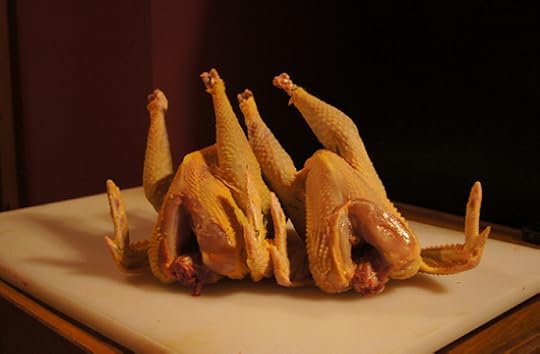 I believe that everyone who chooses to eat meat should have the experience of raising, killing, and preparing their own meal. This is a process we need to understand.
I believe that everyone who chooses to eat meat should have the experience of raising, killing, and preparing their own meal. This is a process we need to understand.
I believe in eating as locally as possible, regardless of your dietary choices (vegan, paleo, vegetarian, etc).
This is how I learned to humanely kill a chicken. The photos are explicit, but I hope they will inspire you to a deeper sense of awareness and appreciation for your meal.
These birds were fertilized, hatched, raised, cared for, and loved at The Wolfestead.
Click to view slideshow.
The step-by-step process we used to kill our chickens:
Direct YouTube link HERE.
“There is no difference to me in the killing of bacteria that is out of balance in my body causing my system to be ill, than to kill a chicken to sustain healthy life. Also, when I am done with my body, or my body is done with me, I would wish, if possible, for the atoms of my body, my flesh, to be able to be dismantled by animals and organisms for their benefit and life. Feel free to feed me back to my chickens, they are canabilistic little bastards.” – Nathaniel Wolfe
You May Also Enjoy:
4 Powerful Lessons From a Nomadic Life
Vulnerability and Catcalling in Bear Country
Q&A Uncesored: Ask Us Anything
****
Check out my book: The Summit Seeker


November 22, 2013
Ontario, Canada: Finding Home Right Where it Always Was
“Why do you go away? So that you can come back. So that you can see the place you came from with new eyes and extra colors. And the people there see you differently, too. Coming back to where you started is not the same as never leaving.” – Terry Pratchett, A Hat Full of Sky
The first time I held a living monarch in my cupped hands was in a eucalyptus grove in Oceano. By California standards, the morning was chilly even though the sun was out on this late January morning.
The grove, owned by the nearby city of Halcyon, was believed to be land on which Native Americans thrived. I walked in awe under the towering trees with my friends Pat, Caity, and Colin. The dogs, Nigel and Ginger, ran circles at our heels.
I spotted the monarch lying motionless on the ground. Fearing it was dead, I picked it up and squealed with delight when it twitched against my fingers. Then I spotted another one nearby. And another. I looked up and noticed the eucalyptus above me was covered in butterflies, but they were barely moving.
When monarchs get cold, they lose the ability to fly. They rely on the sun to warm their flight muscles and give them mobility. Most monarchs can crawl at temperatures of 41 degrees Fahrenheit, but need a temperature of 55 degrees to fly. These orange and black beauties were chilly.
Later that year in October, I was on the other side of the continent. It was a lovely day by Canadian standards in Cobourg, Ontario, even though I was shivering. The wind off the water whipped sharply against my skin, but the monarchs didn’t seem to mind. They fluttered playfully with the wind, weaving their fragile bodies in figure eights across the shore.
What are they still doing here? I wondered. Shouldn’t they be heading south?
Two years ago, local resident Sue Hedgedus carried out her vision of a monarch way station in Cobourg. With the help of volunteers from the Cobourg Ecology Garden, Sue built the monarchs a safe place to lay their eggs.
Could I really blame them for lingering? After all, I was also clinging to my northern home past the shorts-and-t-shirt season. I was here to celebrate Canadian Thanksgiving with my family. It had been two years and 40,000 miles since I had last seen them.
Thanksgiving was better than expected. The affectionate welcome from my family and the joy of reuniting with my sisters made me wonder why I had been in such a rush to leave.
Two years ago, I boarded a plane at Toronto’s Pearson airport with a dismissive wave and a “good riddance”. I was floundering in a dead-end relationship, overwhelmed by family drama, and frustrated with a lack of trail races. I needed space to breathe. Physical space. I needed mountains and single track and solitude. I needed to be miles away.
In San Diego, I found a surrogate family of trail and ultrarunning friends. I immersed myself in the outdoors. The mountains were a salve for my soul.
I disassociated myself with everything I had left behind in Toronto, and I lost touch. Canada had left a bitter taste in my mouth. I had only seen a sliver of it—a city where I didn’t fit in, and for two years I rolled my eyes at the thought of ever returning.
From San Diego, I had followed the west coast to Alaska. Then last September I asked Shacky if we could drive across Canada. Part of me hoped that it would be wonderful. Another part of me hoped it would be terrible—to prove that I had been right to leave.
Then Alberta happened. The Columbia Icefields, Jasper National Park, and Banff happened. My jaw dropped at snow-peaked mountains and crystal-clear waters and wildlife that didn’t know how to be afraid.
In Canada, we traveled through some of the most spectacular scenery my nomadic eyes had ever seen. More scenic still than the Alaska highway, the Columbia Gorge, or the lush trails of Oregon—especially beautiful to me, because it was home. This was a country I had always known, yet never known at all.
I discovered friends in Manitoba, enjoyed the hospitality of strangers in Prince Edward Island, and was humbled by the dramatic tides of the Bay of Fundy. Small towns warmed my soul and my heart began to swell with the pride of being a Canadian.
[image error]
[image error]
[image error]
[image error]
[image error]
A few months earlier I had been nodding my head at Mark Twain’s account in Roughing It (1872). He, too, had moved to California in 1864 as a journalist, and was inspired by travel.
I posted the following Twain quote on my Facebook wall:
“Travel is fatal to prejudice, bigotry, and narrow-mindedness, and many of our people need it sorely on these accounts. Broad, wholesome, charitable views of men and things cannot be acquired by vegetating in one little corner of the earth all one’s lifetime.”
The first to reply was Michael Sean Comerford, a hitchhiker we had picked up in the Yukon. Michael had been on his way to Anchorage to work at a carnival, but he was a journalist by trade. For one year, he was traveling as a nomadic carny and surviving on carny wages. He was blogging from the road and gathering experiences for a book. Michael carried a tiny notepad where he carefully wrote down our names, and we have been friends ever since.
Expecting Michael’s comment to be pro-travel, I was surprised to read what he actually typed. He said:
“Twain simply did not meet all people or travel to all ‘little corners’ of the earth when he wrote this. I’ve met extraordinary people who’ve never traveled. And what does it mean that he traveled and yet became a misanthrope toward the end of his life.”
Michael’s reply made me pause and think of all the wonderful people we have encountered on our journeys. They were not nomadic. Many of them were 9-5’ers. They had families. They had communities. They had homes.
They offered us food and hot showers and hospitality, opening their lives and sharing everything they had. Far from narrow-minded, they have helped us reconsider our own prejudices and assumptions.
They are trees and we are butterflies. They are less mobile, but no less important, and it is lucky for us that they are rooted to the ground—a safe place to land.
I understand this now.
Our pilgrimage to Alaska is one that many people associate with Christopher McCandless’ journey described in Into the Wild. When Outside magazine posted an article about McCandless’ death, the comments lit up in heated debate between two distinct positions: those who supported McCandless and those who were disgusted by him.
McCandless’ supporters described him as someone who was really living and never hurt anyone. They attacked naysayers with the disturbing implication that people who hold steady jobs and stay close to their families are somehow not fully living.
The opposition identified McCandless’ travels as selfish and indulgent. They insisted that he did indeed cause much pain to his family.
These days, I am forced to pause and re-examine my day-to-day.
Has my life become so much about mountains, trails, and summits, that I am neglecting the relationships that matter the most? Have I called my mom? Have I written to my sister? Have I Skyped with my friends?
In the end we are influenced—not by those who have seen the best views—but by those who have spent the most time with us, thought about us, and shared in our milestones.
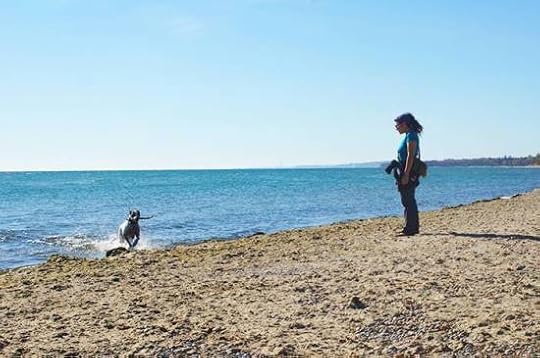 Playing on the shores of Cobourg, Ontario
Playing on the shores of Cobourg, Ontario
Earlier this month I received an email from a lady named Camille who wanted to profile me for a feature she was writing. The topic was the evolution of the American Dream as it passed from parents to children. What did the American Dream mean to me, and what had it meant to my parents?
This was a topic I had been churning in my brain for some time. Over Skype, I told Camille about my dad’s immigration to Canada, his struggle to provide stability for me, and his quest to accumulate the possessions I grew to shun: a house, a car, and all the amenities of a comfortable life.
At times, I’ve felt guilty about my choice to abandon all the things my parents worked so hard to give me. I reconcile those feelings by reminding myself that my parents didn’t struggle to give me a physical house, but rather freedom—the freedom to educate myself, to write exactly what I think, and to take the unpopular route. I am free to define success on my own terms.
Still, I feel a pull when I am away from my family, and I attribute that to a newfound sense of maturity. It’s that moment when you’ve wandered enough miles to know where your family lives and why it’s important that they know where you are.
After Thanksgiving dinner, it’s already dark outside. I button up my winter coat and follow my family out to the car to say our goodbyes. After hugs and promises to stay in touch, my sisters pack into my mom’s green mini van and make themselves comfortable in the backseat for the long drive back to Toronto.
Kayla, my ten-year-old baby sister, is squashed in the back corner of the van. I can barely see her little limbs as she wiggles herself back outside at the last second. She races toward me and throws her arms around my neck for one last hug. She sobs into my shoulder while my family waits in the car.
I smooth her hair and hug her tight. I tell her how much I love her and how beautiful and strong she is. She can barely catch her breath between her tears.
Kayla’s outpour surprises me. I am as surprised as McCandless might have been to learn that his parents loved him deeply—except I have lived to see that affection firsthand.
I am more than a nomad, a trail runner, and a mountain bum. I am the big sister who sends postcards but rarely calls. And Kayla is the ten-year-old who misses me so very much.
And that’s when it clicks. I know now why the monarchs have not migrated.
Their loved ones are rooted to the earth, and they must linger until the last possible second before flying away.
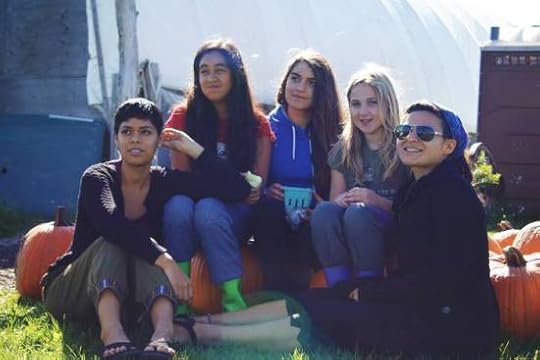 From L to R: My sisters Eli, Naty, Emma, Kayla, and me
From L to R: My sisters Eli, Naty, Emma, Kayla, and me
“What is that feeling when you’re driving away from people and they recede on the plain till you see their specks dispersing? It’s the too-huge world vaulting us, and it’s good-bye. But we lean forward to the next crazy venture beneath the skies.” – Jack Kerouac, On the Road
BUILD YOUR OWN MONARCH WAY STATION
Monarch populations have been receding at an alarming rate due to the disappearance of the milkweed they depend on. Please consider planting a simple monarch way station in your own garden. Here’s how.
You May Also Enjoy:
Answering the Call of the North
4 Powerful Lessons From a Nomadic Life
****
Check out my book: The Summit Seeker


November 18, 2013
Spartan Race Entry Giveaway
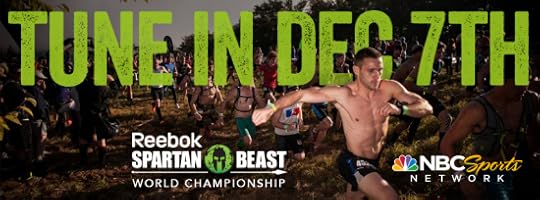
This giveaway is to celebrate the upcoming December 7th airing of the World Championship Spartan Race on NBC Sports.
In this 90-minute special, NBC follows eight professional athletes and four everyday Spartans at the Spartan Race World Championships in Killington, Vermont.
WIN A FREE SPARTAN RACE ENTRY
This race entry is valid for any open heat in any 2013-2104 Spartan Race in the Continental US. Check out the Spartan schedule for a race near you.
To win, simply leave a comment on this post answering the question:
“What personal or athletic advances have you made in the past 12 months?”
If you share this giveaway on Facebook, Twitter, your blog, or any other form of social media, you get an additional entry. For example, if you share on Facebook AND Twitter, that’s two extra entries. (Leave a separate comment telling me where you shared.)
You can also use this URL to generate a 15% off code for any Spartan race: http://bit.ly/spartanwarrior
The winner will be chosen randomly on November 25th, 2013 and contacted directly.
Don’t forget to watch on December 7th and good luck!
SPARTAN RACE VIDEO
Direct YouTube link HERE
You May Also Enjoy:
10 Overlooked Rights Worth Fighting For
The Burpee Challenge: 3 Things I Learned and 2 Surprises
****
Check out my book: The Summit Seeker


October 24, 2013
Vulnerability and Catcalling in Bear Country
“Hey! What’s a pretty girl like you doing back here?”
I jerked my head to spot the shabby homeless man. I had walked right past him and hadn’t noticed. He sat on a park bench with an old green grocery bag leaning on his side like a dirty man-purse.
He looked weathered and tired, but his expression betrayed amusement at my unexpected presence. His black hair was disheveled and he refused to drop the piercing gaze of his black eyes.
He appeared to be in his mid-50s, but could have been much younger. I couldn’t tell if his dark skin was his natural hue, or if he was just really dirty. I could smell him.
He had the features of a Native American, and he wore three layers of tattered clothing, even though it was fairly warm outside: a black shirt, a black sweater, and a stained, brown jacket. I was wearing my short pink running skirt and a light green tank top.
I felt naked as he leered at me, waiting for my response.
“Um… hi,” was all I could manage.
He caught me off guard. I had jogged there from the park where we were playing ball with Ginger, off to the left of the Fairbanks visitor’s centre in Alaska. This was our first big Alaskan town and we were kicking off a much-anticipated summer of exploring Alaska’s trails.
I was heading to the visitor’s center to check the movie times for a documentary film I wanted to see on the Aurora Borealis. Instead of walking to the front door, I thought I could get in through the back. I didn’t know anyone was there.
He continued to pursue conversation and my discomfort grew. I was sharply aware of his intruding eyes on my body. My heart rate began to instinctively rise and I felt a warm wave of anger wash away the smile I was wearing. I responded with more mumbling and walked away. No way was I going to let him see me run.
Once I was safely out of his line of vision, I walked dejectedly to the front door. I didn’t care about the movie anymore. I was mad.
I was mad that I couldn’t jog away from my boyfriend for two minutes without being the recipient of unwanted attention. I was mad that I was minutes into my epic Alaskan adventure, smiley and excited, and this guy ruined it. But most of all, I was mad that my first reaction had been to deflate and flee the scene.
I saw flashbacks of myself years ago—in my 20s, and in my teens—being called at, leered at, and yelled at by strange men on the street of Toronto. I felt that same old wave of fear and panic I had always felt, not knowing whether those men carried weapons, whether they would follow me home (some did), or get angry if I didn’t respond.
I live a different life now. I have grown stronger and wiser, and most importantly I have gotten away from those shitty neighborhoods.
I have struggled to educate myself. I was the first in my family to graduate from University. I have finished 100-mile races and uncovered new strengths in both my body and my mind. I have written a book and traveled to the most remote state I could think of… yet none of that mattered.
Here on the edge of the world, there was still anger and fear and poverty, and an old man on a bench in his shit-stained coat could still make me feel like a nobody.
Why wasn’t I stronger, I raged to myself as I stormed into the visitor’s center.
Later that morning, an older man stood in the park and watched me do yoga. Under normal circumstances I would have thought nothing of it, but now my senses were on high alert.
Shacky sat nearby with Ginger, but that didn’t matter. I could feel the man’s eyes watching me.
Downward dog….
Now plank…
Every alert system blared in my head as I shifted positions. My skin crept with that instinctive itch all women experience when they know they are being sexualized.
I WILL NOT LET YOU STOP ME FROM DOING MY YOGA!! I screamed at him in my head. This time I would be strong.
Every position was now a rebellion, shooting defiance and indignation in his direction.
Keep your face calm, I told myself. Don’t let him see that it bothers you.
Warrior 1…..
Warrior 2…..
GO AWAY GO AWAY GO AWAY GO AWAY!!!!
I finished my yoga and stomped off.
Less than an hour later, I had to use the bathroom but there was a man lying on the sidewalk, blocking my path. I didn’t want to walk past him, so I asked Shacky for the key to pee in the RV.
“He’s fine,” Shacky assured me. “He’s here with his family. He’s not homeless. His kids were just here.”
Really? Were my instincts off? Was I being oversensitive and paranoid?
I headed toward the bathroom. As I passed, the harmless guy stretched himself across the floor of the sidewalk to look up my skirt. I rushed into the bathroom and peed, seething on the toilet seat.
I was helpless and weak, hiding in the girl’s bathroom just like I did on the first day of middle school when I couldn’t find my computer classroom. Then again at lunch when nobody would sit with me.
I tried to brush it off. Certainly, I had endured much worse. Still, I couldn’t shake my disappointment in myself. How could men I didn’t even know still have the power to make me feel frightened and objectified? I hadn’t changed at all.
I was off my game for days. Nothing noticeable, but subtle frowns mixed with streaks of paranoia. When a man approached us to ask about Ginger a few days later, I tensed up. The little things made me feel a lack of control.
Fairbanks wasn’t what I had hoped. An unexpected heat wave forced us to keep the dog in the RV with the A/C running. When we tried to explore the trails, starving herds of mosquitoes bombed us repeatedly like angry wasps.
Unprepared, we had no bug spray. Our dog would run back to the RV after only a few minutes outside, covered in red welts. She’d nip at the air and swat her own face until we finally had the sense to leave town. Unreasonably, I blamed those men. They had ruined the entire city. Fuck them.
A few days later, the beautiful town of Anchorage lifted my spirits and I decided to approach this issue the same way I always handle things that trouble me: I research them.
I wanted to understand why men acted this way. Did they want attention? Did they genuinely believe this was an effective way of finding a mate? Did they think women enjoyed it?
And what was the most effective way to react? Ignore them? Humor them? Shout at them? Out-creep them? I didn’t want to give them the satisfaction of reacting exactly the way they wanted. I didn’t want them to know they had gotten a rise out of me.
Most of what I found online was directed at men—a lot of “Stop it, guys!” and little analysis. Then I stumbled on an essay in The Atlantic by Ta-Nehisi Coates examining manhood. Coates argues that men street harass women as a means to feel more powerful. They are not terrible people, but simply powerless men who lack opportunities to display dominance in other areas of life.
Men who are validated and respected do not need to catcall. Men who are trampled, disrespected, and overlooked get a rise out of making a woman squirm. When the powerless man watches a woman drop her eyes or shuffle away in embarrassment at his call, he feels powerful. She has noticed him.
Alyssa Royse offers another perspective. She believes the unfortunate cause is society’s habit of demonizing male sexuality. “It starts young,” she writes. “Girls are told that boys are predatory and somehow out of control. The corollary there is that boys are told they are predators, and out of control. Therefore, not a desirable thing, but a thing to defend against. From the get-go, we are teaching our kids to fear male sexuality, and to repress female sexuality… It’s sad. It’s insulting. And it’s damaging…This way of looking at male sexuality conflates sexuality with predation.”
As far as street harassment prevention, many women on online forums seem to embrace a concept known as “bitch face”. They brag that the reason they are not harassed more often is because they go through life wearing a “default bitch face”.
Here is the scholarly definition according to Urban Dictionary:
I am horrified by this concept. I worry that if I wear a bitch face all day, I will soon become a bitch in real life. I need my default face to be a happy one. I need to smile until I have a good reason not to.
In my world, defaulting to a bitch face would allow random men to hold me prisoner to my own fear and skepticism. It would ruin not only the days they call to me, but also the days they don’t. They would sentence me to walk through life with my guard up, a burden I cannot accept.
I may not be able to control the comments of every man on the street, but I can protect my instinct to smile. No matter how often I am made to feel uncomfortable or self-conscious, I can preserve my faith in the inherent goodness of humanity and tear through every corner, laughing and running in a short skirt as though nothing unpleasant has ever surprised me. I can choose to stay vulnerable—on purpose.
Brené Brown recently intrigued me with her TED Talk on the path to vulnerability. She stumbled on the concept of vulnerability in her research on connection and shame, and like many of us, she was terrified by it. “In order for connection to happen,” she says, “we need to be seen—really seen.”
After six years of deep research that included hundreds of interviews and thousands of stories, Brown isolated a breed of people that she describes as “whole hearted”. These people had found connection, love, and belonging. They were living to the fullest.
Brown took a magnifying glass to their lives and found two common threads:
1. They were courageous.
There is a difference between bravery and courage, Brown stresses. Courage, from the Latin word cor (meaning heart), was originally defined as telling the story of who you are with your whole heart. “They were willing to let go of who they thought they should be in order to be who they were,” Brown says.
2. They were vulnerable.
Not only where these people vulnerable, but they embraced vulnerability. It was important to them, and they believed it made them beautiful. They talked about vulnerability as something that was important, not excruciating. They were willing to say, “I love you” first, and they were willing to invest in relationships that might not work out.
This data started Brown down a long and difficult path of learning how to implement vulnerability into her life. She came to an important conclusion that perfectly describes why bitch face is so tragic.
“You cannot selectively numb,” Brown says. When we try to stifle feelings of anger, grief, and despair, we numb everything. “We numb joy, we numb gratitude, we numb happiness.”
Bitch face is a numbing. It’s an armor shielding against unwanted attention, but also against anything good that may cross our paths that day. It protects us from catcalling, but it also protects us from unexpected kindness, motivational encouragement, and spontaneous hospitality.
I spent the rest of the summer practicing vulnerability in Alaska. This mostly manifested itself in me being a nerdy goof (read: being myself), talking to strangers, and singing to the bears. I took more chances than usual and climbed steeper hills.
I learned to approach each new experience with a fresh expectation of success, though yesterday may have ended in disaster. And every new man gets a clean slate.
Brown’s TED Talk on the Power of Vulnerability
Direct TED link HERE
You May Also Enjoy:
Sequoia National Park: Finding Resilience in the Forest
Are You There Running? It’s Me, Vanessa
****
Check out my book: The Summit Seeker


October 7, 2013
Q&A Uncensored: Answers to Your Questions
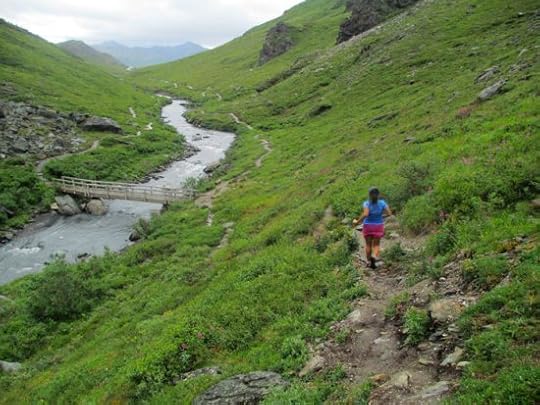 Photo: Denali National Park in Healy, Alaska
Photo: Denali National Park in Healy, Alaska
In my previous post I presented an open invitation for anyone to ask me anything—no topic was too taboo or too personal. Here are the questions I received, and their answers:
Do you and Shacky ever fight? You are living in a very small confined space and have to be totally flexible with your lifestyle, so when and if issues/disagreements come up, how do you resolve them? You really do seem like a love conquers all couple (I know that sounds corny). – Corina Smith
It sounds crazy, but we have never fought. Both of us have a very similar temperament: laid-back, calm, and low maintenance. We also both love this lifestyle and we don’t have the typical stressors that other couples balance: debt, work, time management, children.
Many of our challenges involve working as a team (e.g. researching places to go, organizing travel details, navigating new terrain). This has produced an “us against the world” mindset that motivates us to cooperate and compromise.
I attribute the peace in our relationship to simple living combined with compatibility. That said, things like hunger and heat can make us both very grumpy. Although we may experience a moody discomfort, we tend to be angry at our circumstances or other people (bad drivers, etc) rather than each other.
I recently read a great quote from Gunter Holtorf, a 75-year-old world traveler who has driven his car (and lived in it) for more than 820,000 kilometres all over the world. He traveled with his wife until she passed away. He writes:
“When you live in a car for nearly 20 years, it’s not a normal situation of a couple living in a home. Living in the car, and doing all that travel over all those years is like living as Siamese twins. When you travel like that, you can’t say, ‘I’m going to go read a book in the garden.’ You are stuck together, 24 hours a day. The only splits would be if one of us went shopping, or if you go behind a tree to use a toilet. You are bound to be together.”
What do you think about the competition element of ultramarathons? – Katie
I strongly support competition.
Back in San Diego, I volunteered for an organization called Girls on the Run. They do a lot of great things, but this was one topic of disagreement I had with them.
I was a volunteer running coach for a group of middle school girls. They were at that age where socializing and boys were more important than physical activity, and they were reluctant to participate. We coaches brainstormed about how to motivate them.
We agreed on the idea of introducing a sense of friendly competition and felt confident that this was the missing spark. Our idea was squashed by the higher-ups. We were told the organization didn’t believe in competition because it might lead to some girls feeling excluded. Although their arguments sounded great on paper, I knew the girls were being cheated.
One of the worst things we can do is to teach our young girls to associate a strong and healthy competitive drive with negativity, exclusion, and/or bullying. On the contrary, competition brings out the best in us. This is true not only in running but in life.
Competition is that fire in our bellies and that extra push in our legs. It teaches us to handle both victory and defeat, and sets us up–not for always winning–but for trying our best every single time.
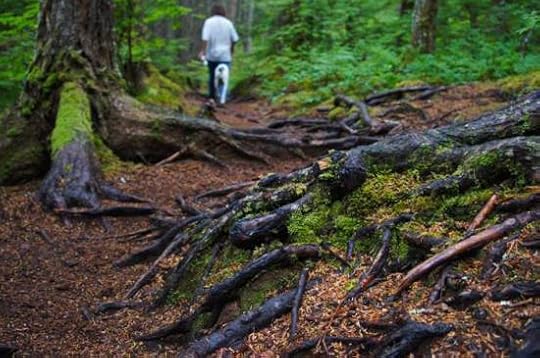 Photo: Battery Point trailhead in Haines, Alaska
Photo: Battery Point trailhead in Haines, Alaska
Did you know that your writing career would flourish when you started to do it for yourself, or is this a happy side-effect of your lifestyle, and having more time to follow your passions? Was spending more time writing one of your goals? – Katie
I did expect that my writing would flourish. I believed in myself wholeheartedly and in the full potential of my talents. Embracing that type of confidence is the only way I was able to survive the insurmountable negativity of my past. I am still my own #1 cheerleader.
Sometimes people confuse a lack of confidence with humility, or confuse self-love with narcissism. I believe you have to love yourself fully in order to love others well. George Sheehan once wrote, “I have met my hero, and he is me.” Be a person you can be proud. Be your own hero.
Why IS everyone going to work all their lives and missing all this wonder and beauty in the world?! – Katie
I don’t think working necessarily means you will miss all the wonder and beauty in the world. “Work” can be seen as a dirty word in nomadic circles, but that is a mistake. In reality, I work much harder now than I ever did for an employer, because I am more motivated and passionate about what I do. My paycheck just isn’t as large or as steady.
I love this quote by Howard Thurman: “Don’t ask what the world needs. Ask what makes you come alive, and go do it. Because what the world needs is people who have come alive.”
If you find what makes you come alive, your world will always be filled with wonder and beauty, regardless of employment.
I’m wondering what you eat and if it’s changed a lot since being on the road. – Tam
We’ve experimented with everything from paleo to vegan. I felt best eating mostly raw vegan, but I’m not strict about it. I try to fully experience the places we travel to, and that includes local foods. For example, on the West coast we ate a lot of fresh seafood, and in Alaska we ate wild game.
Food for me is highly social and I believe in long lunches, lots of sharing, and homemade meals with good friends.
What has traveling taught you? – Kristin
It has connected me to who I am and what I love to do. It has also reignited my faith in humanity. There is still so much goodness and generosity in the world. Once we get away from our digital screens and start talking to real people, it’s easy to see that the good far outweighs the evil out there.
If you had to run one 10-mile portion of trail for the rest of your life, where would it be? – Scott W. Kummer
The Los Pinos hill climb of the Los Pinos 50K course. This was the first stretch of trail that broke me, and I didn’t meet the cutoff at the top of the hill. It’s a brutal, exposed hill.
After it defeated me that first time, I went back and completed it three more times. The weather is always extreme and unpredictable. It’s a real challenge to carry enough food and water, and a real danger if you run out.
The original race director, Keira Henninger, gave it up because she didn’t feel she could keep runners safe on this climb. My friend Carlos Quinto, with Keira’s blessing, has recently resurrected the event. The first time we took Carlos out there, he had to beg some bikers for spare food and water. It’s a glorious challenge.
HERE is my first race report at Los Pinos.
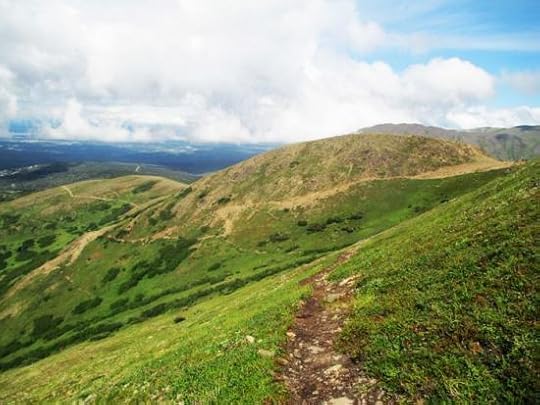 Photo: Flattop Mountain in Anchorage, Alaska
Photo: Flattop Mountain in Anchorage, Alaska
How do you deal with others judgment of you and your decisions? I grew up in a people-pleasing environment and this is something I struggle with. It seems like you are very strong in your decisions and beliefs. – Alena
I used to be surrounded by naysayers and it took a lot of courage to separate myself from them. I have deleted online friends, broken off in-person friendships, and even cut contact with certain family members. The transition was difficult and awkward, but since then my life has evolved so much faster and my confidence has soared. I strongly support a ruthless purging like this for everyone.
Of course, this doesn’t mean you disassociate with people who don’t agree with you, but rather say goodbye to people who wish you ill and poison your life with their misery. Life is to short for negativity and toxic relationships.
People still make judgments of course, mostly online (you will never escape that), but now they are not people who are close to me. I can review their points, and if there is no validity there, I can easily shake them off.
What do you miss about having a fixed address and “regular” job? (I’m sure the answer is NOT “nothing” — every living situation has its good and bad features, even if it’s just the great Mexican restaurant down the road from your old house.) – Robyn
I really miss the familiarity of running the same trails over a period of months. Familiarity makes it easier to note physical improvements, and to mentally push myself to do better over time, especially with something like hill repeats (it helps to have the same hill!). It’s also lovely to watch one trail change with the seasons—I miss that. Finally, I miss going out for breakfast or coffee with old friends.
If you could change ONE thing about yourself as a person, what would it be? – Jen S.
I would give myself a better sense of direction. I am constantly getting lost while others seem to have a natural compass in their brains. I’d love to be able to go somewhere and automatically know how to go there again on my own, instead of having to look it up. I’m getting better, but it’s definitely challenging since we are constantly visiting new places.
What advice or tips would you give to someone who was considering giving it all up in order to live a more simple, nomadic life? – Katie
Don’t wait to simplify your life—do it now. There are many ways you can start downgrading to make the transition easier. This can include giving stuff away, selling things, or cutting out non-essential expenses. We waited until the last minute, and it became overwhelming to get rid of so many things. In retrospect, we should have started much sooner.
What’s the weirdest sexual act Shacky has requested since hitting the road? – Jason
Our sex life isn’t that weird, sorry to disappoint! I feel like we’ve both had enough experiences to know what we like, and we pretty much stick to our favorite acts, which happen to be fairly standard.
While “What’s the weirdest sexual act Shacky has requested since hitting the road?” is hilarious, dare I add… Where?! – Jen S.
Always in the RV, everywhere from San Diego to Alaska to Toronto! Sometimes beautiful locations like mountains or glaciers, and other times just Home Depot parking lots. The RV has great cover so our biggest challenge is to not kick the pets.
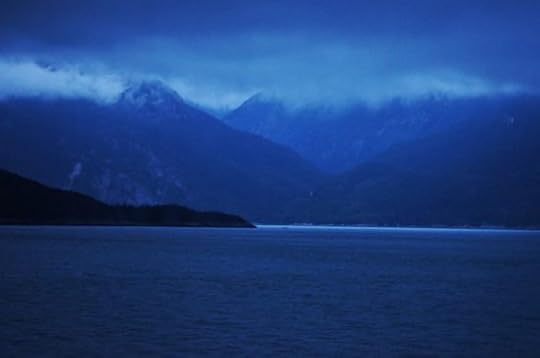 Photo: On the ferry from Haines to Skagway, Alaska
Photo: On the ferry from Haines to Skagway, Alaska
Do you make any money directly out of your running—through sponsorships or any other way? Or do you just run for the love of it? – myrunspiration
I don’t make money directly from running, but sometimes I get free race entries. I also get a small income from blog ads (WordAds via WordPress) and income from my book, The Summit Seeker. I will sometimes get free gear, like clothes or shoes in exchange for blog reviews.
I’m not fast enough to win races and even if I were, ultrarunning is not very lucrative. I definitely run for the love of it and usually pay to do so. I don’t keep my medals or race swag since space in the RV is limited. I give everything away to volunteers who were exceptional that day.
Do you worry about health insurance or medical costs? – Anj
Not as much as I should. I do have coverage in Canada (I’m Canadian), but that doesn’t necessarily help me outside the country. We’ve been looking into a few options and I’ve been scolded about not making it more of a priority.
How many states have you visited since you took off? How long have you been on the road now? Can you tell me the month and year you left for this trip? Any idea how many different trails you’ve explored or run during this trip? – Kristin
We have been on the road for one year (since August 2012). We’ve explored countless trails and run 2,000 miles, driven 30,000 miles, and visited 17 national parks (2 Canadian, the rest American).
Does the RV ever smell due to lack of showering? – Jakehat
Not from our bodies (we can keep up pretty good with at least a wet wipe), but sometimes if the dirty laundry piles up, it will smell like… dirty laundry. Also, when the cat takes a poop, we all smell it for a few glorious seconds until she covers it up.
If we don’t clean and put away our gear after a long run, a running funk will develop. I’m in charge of cleaning and I normally stay on top of it, although it’s surprisingly difficult to sort, clean and store all your gear immediately after a 100-mile race. In those cases, we surrender to the funk for a day or two.
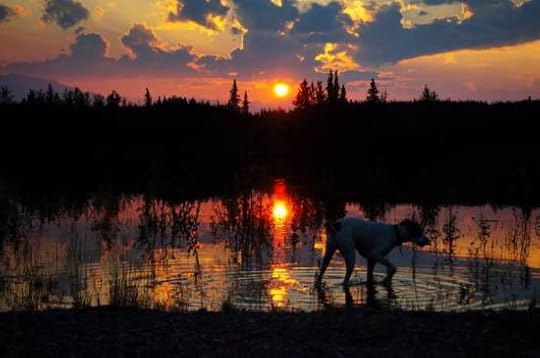 Photo: Spending the night just outside of Whitehorse, Yukon, Canada
Photo: Spending the night just outside of Whitehorse, Yukon, Canada
What do you feed ginger on your long runs together? I’m training with my dog and figure if I am eating something, she should be too. – Dustin Heath
We will carry any of her favorite foods. She loves hot dogs, jerky, and peanut butter. She seems to enjoy burritos as well. When she ran a 50K with me she enjoyed potatoes from the aid station. Almost anything she is willing to eat, we will feed her. She is a picky eater so we trust her instincts.
Do you ever listen to the weakerthans? – Jakehat
I had never heard of them, but just checked them out online. Not bad! I’ll get Shacky to download more of them. We’re currently on a Johnny Cash binge.
When can we all go for a run on Brown Mountain?! – Rob G.
Not sure where that is? 
I always picture you and Shacky driving around singing Queens Bohemian Raphsody. What are the lyrics to that song? – Istomsl
Shacky prefers this version.
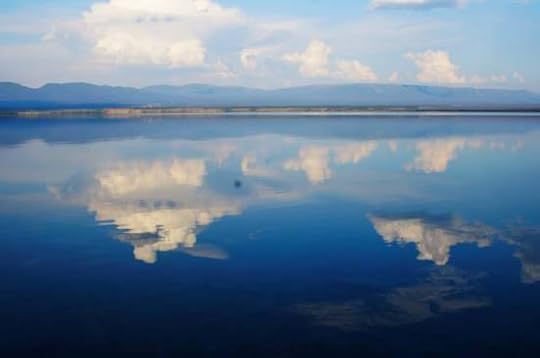 Photo: Kathleen Lake in Yukon, Canada
Photo: Kathleen Lake in Yukon, Canada
You May Also Enjoy:
Answering the Call of the North
The Pacific Northwest: Finding Humility at the Waterfall
****
Check out my book: The Summit Seeker


September 17, 2013
Q&A Uncensored: Your Chance to Ask Anything
Photo: Bow Lake in Alberta, Canada
Two years ago I participated in an online Q&A game via my blog. Because my life has changed so drastically since then, I thought it would be awesome to do it again. Here are the rules I posted two years ago:
You ask me anything. About anything. No question is too weird or strange or stupid or personal. Post your questions in the comment section and I will answer them ALL. It’s that simple! And hopefully fun.
You can ask as many questions as you’d like, and no topic is off limits. Here are the answers to the questions I was asked in 2011:
You asked, I answer! Part I
You asked, I answer! Part II
You asked, I answer! Part III
To get us started, below is a Q&A I did this week for an online publication called Sensa Nostra. They are writing a three-article series on tiny homes and home-free living.
Here’s what they wanted to know:
SN: You gave up a successful writing career in an office to live in an RV and travel the land. Was it difficult giving up all that you’d achieved in your job after working so hard to get there?
VR: On the contrary, I was excited to write for myself as opposed to a news organization or media outlet. I have a journalism degree, and I can write anywhere. I had stories to tell outside of my job and I wanted to write a book. I also never made an obscene amount of money as a writer or editor, so I was used to a very low-budget lifestyle. I felt I had little to sacrifice.
It was harder to convince my boyfriend to give up his job as an electrical engineer for a major biotech company. He has been there for more than 10 years and his income was much higher than mine. There was more for him to lose, and although we both wanted to travel, it was scary to make that jump. We delayed his quitting for several weeks simply because we kept getting cold feet. Once we made the leap, it wasn’t as bad as we imagined.
The experience reminds me of that Indiana Jones scene in the Last Crusade where Jones has to jump across a large chasm and there’s no way he’ll make it. It turned out that after he jumps, there’s actually an invisible bridge. In the same way, we didn’t end up falling into a terrifying abyss, but making that initial jump still took some nerve.
SN: Why did you choose to buy and live in an RV? Did you want to travel, or were you radically changing your life and choosing a minimalist path? Or was it a way to save money once you’d given up your job?
VR: This lifestyle was a dream come true for us. Yesterday, we spent 6+ hours on the Superior Hiking Trail, a 275-mile footpath in Northeastern Minnesota. One month ago, we were running in Alaska. In my old life, I would have spent those days at the office.
We wanted two things when we bought the RV: to travel freely, and to live minimally. Our 22-foot Rialta RV is tiny by most standard. Most people use this RV for day trips or camping, but not for living. I love it because it forces us to keep only what we need and use, and it encourages us to spend more time outdoors.
We also wanted a vehicle small enough to fit into a regular parking spot. We didn’t want to spend any time or money at RV campgrounds. Since we bought it, we have never paid to spend the night anywhere.
SN: Can you tell me more about your day-to-day life in the trailer? Did you expect to be living in this way when you first moved in, or are you constantly discovering many pleasant aspects of this way of life?
VR: We essentially drive from trail to trail. Both my boyfriend and I enjoy trial running, so we visit a lot of national forests, national parks, and state parks. He loves water and I love mountains, so we look for places that combine mountains with waterfalls/streams/lakes.
We have no set plan in our travels and no deadlines. Sometimes we are out in the wilderness all day, and sometimes we find a good wifi spot and settle down to catch up with the rest of the world. Because our wifi time is limited, I spend most of my time pre-loading articles to read later, downloading podcasts I can later listen to offline, or copying emails into documents I can access later. I type the responses when I have more time, and the next time I get wifi, I just send everything off.
We had no idea what to expect when we moved into the RV, so we are constantly learning and making new discoveries. It keeps us on our toes!
SN: Is this a short-term break, or a new way of life?
VR: I don’t see myself ever going back to owning or renting a home, or working a traditional job, but I would never say never. It’s a big world and I still have many more years to live and experiences to experience.
SN: Do you feel that your writing career has actually become even more successful since quitting your office job?
VR: Absolutely, a thousand times over. I finally have the freedom to follow my instincts, write about what I know and love, and dive into research and interviews that truly interest me. My writing has improved drastically, and it is much more personally fulfilling.
SN: What does ‘success’ mean to you? And what do you value most in life?
VR: I love this quote: “Success is the certain knowledge that you’ve become yourself, the person you were meant to be from all time.” – Dr. George Sheehan
To me, that is true success. The freedom to be yourself at all times, never compromising to please a boss or a spouse or society in general.
In life, I most value freedom. That doesn’t translate into everyone being jobless and traveling the world, but it has a lot to do with never feeling like you have to settle. Freedom means being able to construct and live your life on your own terms, whether that is raising a family, starting a business, or working in a career you are passionate about.
I spent so much of my life trying to live on someone else’s terms, and I think many of us do to some extent. Freedom means embracing your own path, whatever the cost.
SN: Have your values changed since moving into the trailer? Do you see the world from another perspective that you’d never previously imagined?
VR: I see the world with much more enthusiasm and excitement. My values–compassion, transparency, and selflessness–have deepened. I feel child-like in my ambitions, like the world is there for my taking.
I can read about a place that sounds interesting, and immediately GO there. I don’t have to put it on hold. I don’t have to ask for vacation time or permission from my family. I don’t have to write it down in a bucket list. I have the freedom to move and travel wherever my whims take me. I feel in complete control of my life–it is truly liberating.
SN: Why do you run? And why do you run ultra-marathons? Was this always your goal?
VR: I fell in love with running in 2007, and when I discovered trail running I never went back to road. I always loved long distances. Ultra running fits well with my personality. It requires a lot of drive, dedication, energy, and mental strength. I love things that are hard and demanding, but low-profile. I love being alone in nature, drinking in the mountains and pushing my body to its limits.
SN: Can you tell me more about barefoot running?
VR: I embraced barefoot running as a way to connect with nature. I love the feeling of mud, bark, soil, and grass under my toes. It goes back to that child-like freedom of running wild, with no cares in the world. It brings me back to that place of bliss.
SN: Are running, writing and living in a trailer all inter-connected for you? Does one influence the other?
VR: They are all things that I love, so in that sense they are inter-connected. I don’t know if I will always live in a trailer. I can just as easily live out of a backpack, or a van, or a bicycle. What matters is mobility and freedom. Writing and running I believe will always be a part of me.
SN: Are there any negative aspects to living your lifestyle?
VR: There are definitely inconveniences. Things like showers, laundry, and chores look very different than they used to, but I can’t say they’re negative. Is rinsing your clothes in a stream more negative than throwing into a washing machine? I think it’s just different.
SN: What does living in this way allow you to do that your old life never could?
VR: Travel full-time.
SN: What are your goals for the future?
VR: I would love to run across El Salvador next year, a distance of approximately 160 miles. I was born in El Salvador and I haven’t been back in years. This will be my way of coming back, making my mark, and reconnecting with a community long-forgotten.
I have a love-hate relationship with my cultural upbringing that drove me to separate myself from Hispanics in the past. My ex used to accuse me of thinking I was “too good” for my culture, but in many ways the cultural values I was raised with damaged me, especially when it came to the role of women and female expectations.
I was raised to be submissive and subservient, always sacrificing my own needs for the men around me. I was also raised to depend heavily on men, both emotionally and financially. My current boyfriend is my first “white” relationship, and the dynamic is very different than what I am used to, and to be honest pretty amazing.
I recently reconnected with my dad after a long time of not speaking. One of the first things he said to me was to thank my boyfriend for “taking good care of me” while I was away from home. I know this is my dad’s way accepting me and my new relationship, so I take it as a positive response. However, it also perfectly reflects what I was raised to believe: that I am useless without a man and incapable of taking care of myself. For the first time in my life, I now have the courage to believe otherwise.
Going back to El Salvador for me would represent a re-birth and a coming out. Kind of like facing an old bully that tormented me for years. I want the country to see who I am and what I have become–that I am so much stronger than they thought I could be and I have bigger balls than most of their men by doing something none of them have dared to attempt. I also want their women and girls to see an example of female strength, courage, and independence. I want them to know they can do whatever the hell they want with their lives.
SN: It’d also be interesting to talk about money – whether you have any, how you earn it and how you use it. And what your perspectives are on what we ‘need’ and what society says about it all.
We started off our travels with a small base of savings, and then I immediately started working on my first book. Now my book and other writings are my only source of income. It’s not a lot, but it’s enough to support our simple lifestyle. I am working on my second book, but it doesn’t at all feel like a job. It’s a labor of love, and I’ve been lucky enough to work because something interests me, not because I need the money. This is the first time in my life I have been able to say that, and it’s a result of living simply, not being rich.
Got more questions for me? Leave a comment below.
Photo: Flattop Mountain in Anchorage, Alaska
You May Also Enjoy:
Seeking Dispensers: A Call to Embrace a Wild Life
Happy Hoboversary! Stats From One Year Later
****
Check out my book: The Summit Seeker



